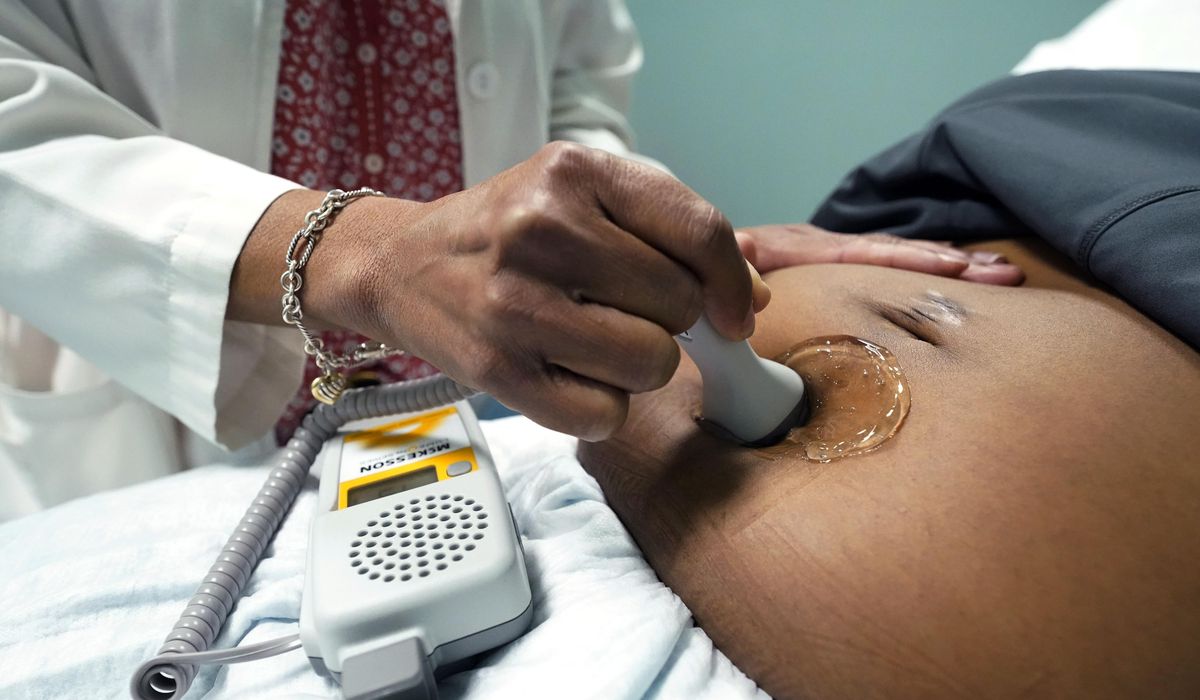


Pregnant women of color who complain about medical professionals committing “gendered racial microaggressions” during OB/GYN visits are more likely to experience elevated blood pressure after giving birth, a study shows.
Three researchers reported this month in Hypertension, a journal of the American Heart Association, that more than one-third of 373 Asian, Black and Hispanic mothers they studied reported at least one “GRM” while receiving obstetrical care at four maternity hospitals in Philadelphia and Queens, New York.
The study defines gendered racial microaggressions as subtle, unintentional slights, such as being told to “calm down.”
As a result, the three-month averages of their systolic and diastolic blood pressure, or “top and bottom numbers,” were 2.12 mm Hg and 1.43 mm Hg higher, respectively, than those of women who did not cite microaggressions during the 2022 study period.
The researchers said their findings add heart problems to a growing body of “emerging evidence” that “structural racism and interpersonal racism” shorten the lives of minorities.
They said further research is needed to study how microaggressions could push mothers of color toward blood pressure medication and rare heart diseases such as preeclampsia.
“It is well-known that Black, Hispanic and South Asian women experience microaggressions during health care,” said Teresa Janevic, the study’s lead author and an epidemiologist at Columbia University Mailman School of Public Health. “It is not as well known whether these microaggressions may have an association with higher blood pressure.”
The researchers noted several limitations in the study, including a lack of data on participants’ blood pressure trends before pregnancy.
Their findings come as the American medical establishment has worked to embed implicit bias training in medical school curricula.
Some medical professors The Washington Times reached for comment said the Hypertension study highlights a need for those efforts to continue.
“Taking care of diverse patients is an honor, and while most implicit biases are controlled and not expressed, others may find themselves revealed at times of great challenge,” said Dr. Panagis Galiatsatos, a physician teaching at the Johns Hopkins School of Medicine.
Dr. Galiatsatos, a health equity lead in the Johns Hopkins Office of Diversity, Inclusion and Health Equity, said medical trainees need “safe spaces” to discuss how not to project their biases onto patients “at their most vulnerable moments.”
Others pushed back on the conclusions. Dr. Stanley Goldfarb, chairman of the anti-woke medical advocacy group Do No Harm, criticized the study’s lack of data on participants’ diet habits and prenatal blood pressure trends.
He called its definition of microaggressions “highly subjective,” noted that many Black women do not receive prenatal care during the first trimester of pregnancy and dismissed its analysis of structural racism in economic and housing conditions as irrelevant to patient-doctor interactions.
“This study is an unserious product of woke identity trying to infiltrate medicine,” said Dr. Goldfarb, a former associate dean at the University of Pennsylvania’s medical school. “Instead of mandating useless therapy sessions for doctors, if we improve prenatal care for these women, we will likely see better health outcomes and improved blood pressure.”
The study administered a 26-question survey to participating mothers, asking them to report how often they experienced gendered racial microaggressions during pregnancy care and check their blood pressure at home for three months after birth.
It then broke down the results based on estimates of “community-level structural racism” in the places where they lived.
According to the researchers, mothers of color living in areas of high structural racism who reported microaggressions at the hospital had the highest three-month blood pressure averages.
Examples of reported microaggressions included “I have been disrespected,” “Someone told me to calm down,” and “Someone accused me of being angry when speaking assertively.”
• Sean Salai can be reached at ssalai@washingtontimes.com.
